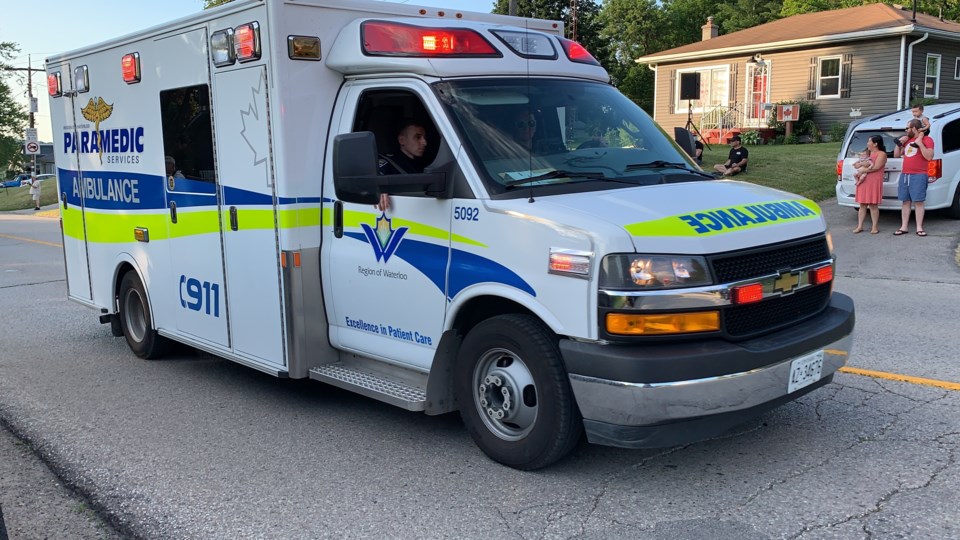Offload delays continue to increase as more people call for an ambulance and head to the hospital emergency room.
Offload delay is the time paramedics spend taking a patient to the emergency department and waiting with them until a bed is free.
Because there are no beds, that creates a backlog when patients come in. And paramedics are left to provide hallway medicine.
A consequences of rising offload delays, is that multiple 'Code Reds' have been issued in Waterloo Region in recent weeks, meaning there were no ambulances available to accept new calls.
As of October, Paramedic Services has averaged 4 minutes 50 seconds per day in 'Code Red' over the past five months. This is an increase of 3 min, 52 sec, from last year.
According to the report from Waterloo Region Paramedic Services, the off-load delay experienced in the region, year to date in 2022, is 35.8 hours, an increase of 23 hours, 18 minutes from last year.
With an ongoing healthcare worker shortage, frontline staff are falling behind in responding to medical emergencies for several reasons including ongoing COVID-19 issues.
According to the report, these key indicators reflect the growing demands on Paramedic Services, driven at its core by a growing and ageing population, exacerbated by increased hospital and health system flow issues across the province.
It’s become common practice for paramedics to be waiting inside a hospital hallway with a patient, sometimes for even 10-12 hours.
According to the report, the average offload delay is 35.8 hours, an increase of 23 hours 18 minutes, a day.
Paramedic Services is currently losing the equivalent of three 12-hour shifts per day to offload delay, more than negating the two additional 12-hour ambulance shifts added by regional council in July 2022.
Offload delays are the time it takes paramedics to transfer patients from ambulance to hospital bed.
The Region of Waterloo is making efforts to help with the dire situation, explains a report heading to the region's community services committee next week.
This past summer, the region announced its ambulance fleet would be expanding with three 12-hour ambulances, and one emergency response unit.
The impact of three additional 12-hour ambulance shifts, implemented in October 2022, will not be known until future reporting, according to the report.
Another eight ambulances are expected, but will not be available until 2023.
Ambulance utilization has increased to 42 per cent this year, while the target remained at 35 per cent as set out in the Paramedic Services Master Plan.
According to the report, unit utilization remains well above the recommended threshold of 35 per cent and is considered "unsustainable on an ongoing basis."
Response time has seen an overall increase of 9 minutes, 9 seconds.
Compared to the same period in 2021, year-to-date response times in 2022 were 13 seconds slower.
So far this year, there have been 55,201 paramedic responses, an increase of 5,975 from last year.
Year over year growth from 2021 to 2022 is expected to be 10.3 per cent: well above the 5-year pre-pandemic, from 2015-2019, annual growth rate of 6.7 per cent.
According to the report, these key indicators highlight the importance of the council-supported shift to a high-growth planning scenario as outlined in the Paramedic Services Master Plan.
Paramedic Services will continue to engage with associations such as the Ontario Association of Paramedic Chiefs (OACP) and the provincial Ministry of Health to find broader health system solutions.


